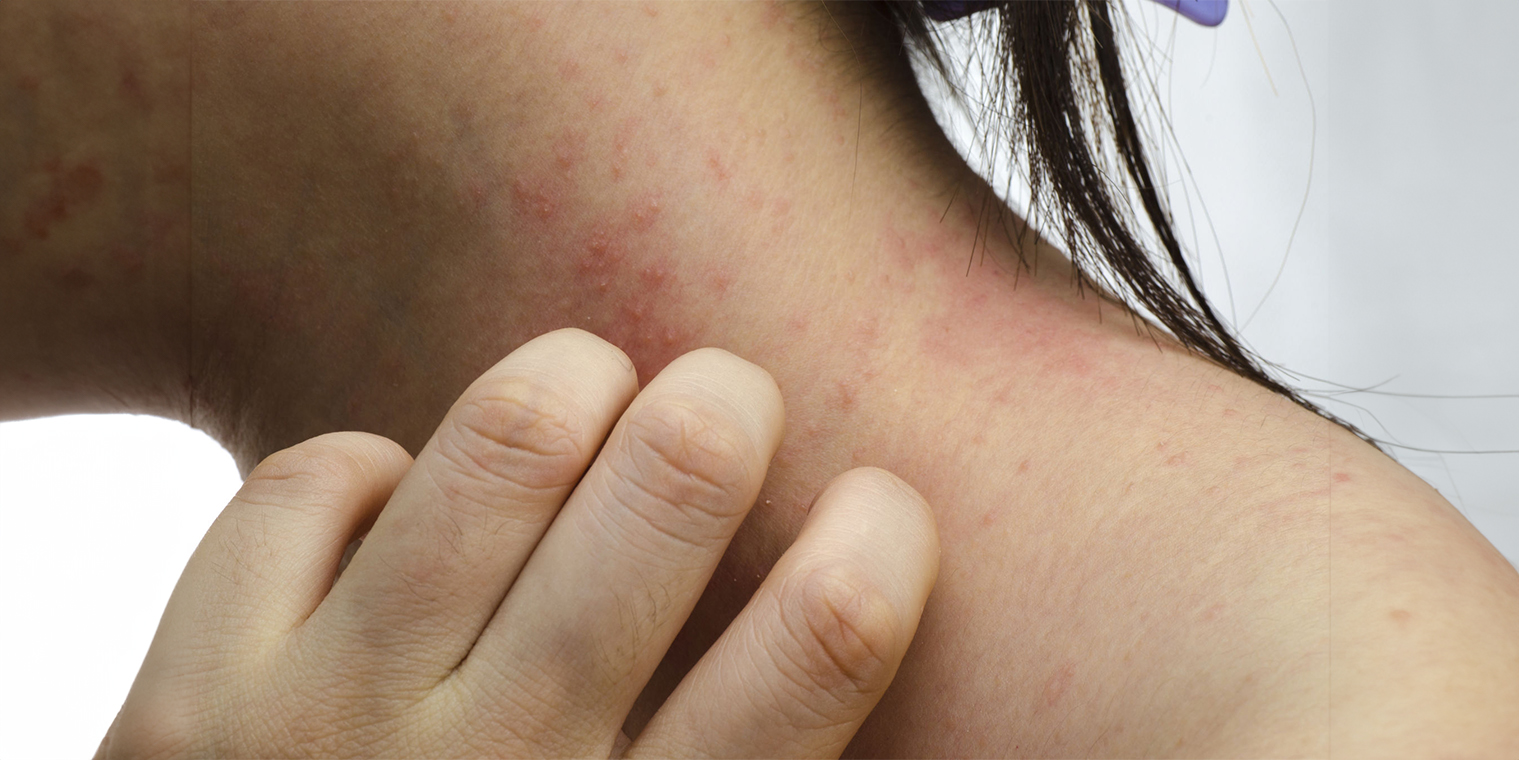
Contact Dermatitis
Contact Dermatitis
Contact dermatitis is a type of skin inflammation that occurs when the skin comes into direct contact with certain substances. These substances vary from common products like detergents, to harsh chemicals, and even cements.
It is a common condition and can affect people of all ages. The condition is characterized by redness, itching, and sometimes blisters or swelling in the affected area.
There are 2 types of contact dermatitis: Irritant contact dermatitis and Allergic contact dermatitis
Irritant contact dermatitis: This type of dermatitis occurs when the skin comes into contact with irritating substances, like chemicals, solvents, detergents, soaps. The severity of the reaction depends on certain factors like potency of the irritant, duration of exposure, break in the skin barrier, pre-existing allergies, and individual susceptibility.
Allergic contact dermatitis: This type of dermatitis is an allergic reaction that happens when the immune system reacts to a particular substance. Common allergens include certain metals (like nickel), latex, fragrances, cements, cosmetics, certain plants (like poison ivy or poison oak), and some medications. This type of reaction is usually not seen after the first exposure, but is seen after subsequent exposure to the same allergen in appropiate quantities.

Book An Appointment
Signs & Symptoms
The signs and symptoms of sun allergy depends on the type of rays involved, which ultimately cause different forms of alllergies. The symptoms are seen on the exposed areas of body, and generally include-
- Itching
- Red to skin-coloured bumps
- Swelling
- Wheals
- Blisters
Causes/ Triggers
Sun-exposure is the only cause of developing sun allergies, but certain factors increase the risk of developing it. These factors include-
- Genetic factors
- Fair skin
- Other allergic conditions
- Certain medications
- Exposure to specific substances that are known to cause allergies in body
- Other auto-immune conditions
Home Care
- Avoid direct sunlight during peak hours (usually between 10 am and 4 pm)
- Wear protective clothing, including loose, light coloured clothes with long sleeves, broad hats, and sunglasses with UV protection
- Apply broad-spectrum sunscreen with SPF >50 before going out
- Use umbrellas, scarfs while going out
- Avoid trigger substances or medications that may cause a reaction when combined with sunlight.
- Do not use home remedies, or misuse steroids if you develop any allergy
- Do not scratch the affected area
- Management of any pre-existing allergies or auto-immune conditions
Treatment
At Skinfinity Derma, we offer a wide range of treatment options to help you manage sun allergies effectively. Our team of dermatologists will work with you to create a treatment plan.
Some of the most common treatments we offer for include:
- Topical medications- These are creams and lotions which work on soothing the body, reduce itching, redness and swelling. These also include prescribing a broad-spectrum, physical and chemical sunscreen, with SPF>50, based on your skin type.
- Oral medications- There are tablets to reduce the severity of condition, itching, or any other infection which may develop.
